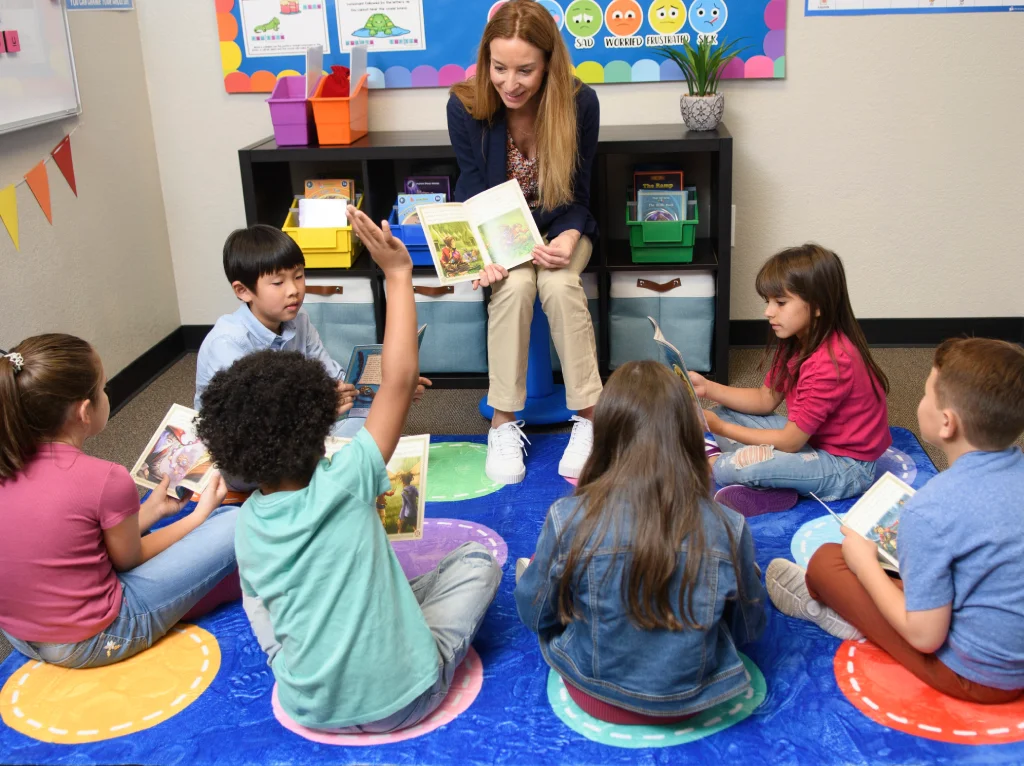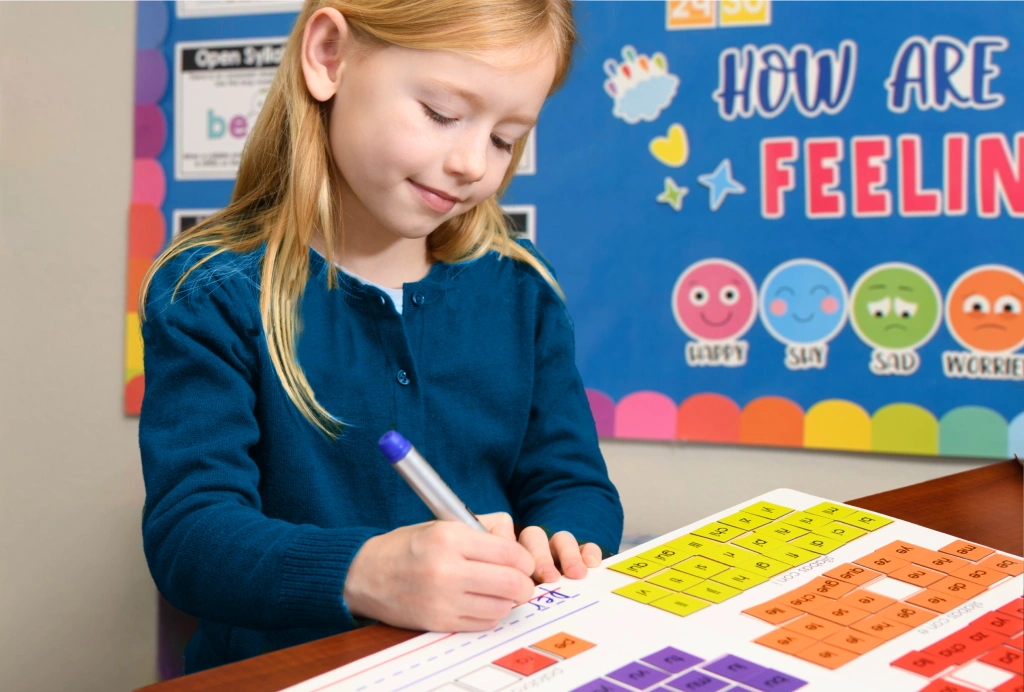In today’s fast-paced world, literacy is often misunderstood as merely the ability to read and write. However, literacy encompasses a wide range of skills that go beyond just reading words or writing sentences. It involves a comprehensive set of abilities including understanding, listening, speaking, and much more. This article explores the multifaceted nature of literacy and why it is crucial for language development and overall literacy development.
The Multidimensional Aspect of Literacy
Literacy is not a one-dimensional skill but rather a complex interplay of various abilities that collectively enhance our understanding of language and communication. Recognizing the different dimensions of literacy can help us appreciate its broader impact on personal and societal development.
Beyond Reading Skills
While reading is a fundamental part of literacy, it is only one piece of the puzzle. Reading skills involve recognizing words, understanding their meaning, and making sense of how they fit into sentences and larger texts. But true literacy means being able to interpret and analyze what you read, drawing conclusions, and making connections to other knowledge.
Reading also involves critical thinking skills. When you read, you are not just absorbing information; you are questioning it, considering its validity, and relating it to your existing knowledge base. This active engagement is what transforms reading from a passive activity into a powerful tool for learning.
Furthermore, reading enhances empathy and understanding of diverse perspectives. Through literature, individuals can explore different cultures, experiences, and viewpoints, broadening their horizons and fostering a more inclusive mindset.
The Role of Understanding
Understanding is a critical component of literacy. It requires the ability to comprehend the context, recognize the author’s intent, and evaluate the information presented. This skill is essential not only for academic success but also for making informed decisions in everyday life.
Understanding involves cognitive skills that help in decoding and interpreting messages. Whether it’s analyzing a piece of text or understanding a complex idea, comprehension is key to unlocking deeper meanings and insights.
Moreover, understanding aids in problem-solving. By grasping the nuances of a situation or a piece of information, individuals can make better judgments and find effective solutions to challenges they encounter.
Writing: More Than Just Words
Writing is another vital aspect of literacy. It involves the ability to express thoughts and ideas clearly and effectively. Writing isn’t just about grammar and punctuation; it’s about organizing your thoughts, developing arguments, and conveying a message with purpose and clarity.
Writing helps in structuring thoughts. It requires the writer to think logically and organize ideas in a coherent manner, which is crucial for effective communication.
Additionally, writing fosters creativity. Whether through storytelling, poetry, or personal reflections, writing allows individuals to explore their imagination and articulate their unique perspectives.
Moreover, writing is a powerful tool for reflection and self-expression. It enables individuals to process their experiences and emotions, leading to personal growth and self-awareness.

Listening and Speaking: The Often Overlooked Skills
The skills of listening and speaking are frequently underestimated in discussions about literacy, yet they play a crucial role in effective communication and interpersonal interactions.
Listening Skills
Listening is an active process that involves receiving, interpreting, and responding to verbal messages. It’s an essential part of communication that helps individuals understand and engage with others. Good listening skills lead to better understanding and collaboration, whether in a classroom, workplace, or personal relationship.
Listening requires concentration and attention. Unlike hearing, which is passive, listening demands focus and the ability to filter out distractions to truly understand the speaker’s message.
Moreover, listening facilitates empathy. By truly hearing what others say, individuals can connect with their emotions and perspectives, fostering better relationships and mutual respect.
Active listening also enhances problem-solving and conflict resolution. By understanding different viewpoints and addressing concerns, individuals can navigate disagreements more effectively.
Speaking Skills
Speaking is a key literacy skill that involves not only the articulation of words but also the ability to convey ideas clearly and persuasively. Effective speaking requires a good vocabulary, understanding of grammar, and the ability to adapt language to different audiences and contexts.
Speaking promotes confidence and self-assurance. Being able to express oneself clearly in front of others can boost self-esteem and influence.
Furthermore, speaking is crucial for collaboration and teamwork. Articulating ideas and listening to feedback are essential components of productive group interactions.
Speaking also plays a role in leadership. Effective communicators can inspire, motivate, and lead others towards common goals, making speaking a valuable skill in various aspects of life.
Literacy Development: A Holistic Approach
To fully harness the potential of literacy, it is essential to adopt a comprehensive approach that integrates all aspects of language and communication.
Integrating Multiple Skills
Literacy development should encompass a holistic approach, integrating all these skills to foster a well-rounded understanding and use of language. This integration helps individuals develop critical thinking, problem-solving, and the ability to communicate effectively in diverse situations.
By combining reading, writing, listening, and speaking, individuals can engage more deeply with content, enhancing their learning experience.
This integration also supports lifelong learning. As individuals continue to develop their literacy skills, they become more adaptable and capable of navigating the ever-changing landscape of information and technology.
Moreover, a holistic approach to literacy encourages cultural and social awareness. It helps individuals appreciate diverse perspectives and engage constructively in global conversations.
The Importance of Language Development
Language development is closely linked to literacy development. It involves the acquisition and expansion of vocabulary, grammar, and communication skills. A strong foundation in language development supports better literacy outcomes and equips individuals to engage more fully with the world around them.
Language development starts from an early age. Exposure to rich and varied language experiences helps children build a strong linguistic foundation that supports future literacy development.
As language skills grow, individuals can express themselves more precisely and effectively. This leads to improved communication in both personal and professional contexts.
Language development also enhances cognitive abilities. It supports memory, attention, and problem-solving skills, contributing to overall intellectual growth.
The Impact of Literacy on Everyday Life
Literacy skills have a profound impact on various aspects of life, influencing academic achievement, professional success, and personal fulfillment.
Academic Success
In the academic realm, strong literacy skills are crucial for success. They enable students to understand complex texts, express ideas clearly in writing, and engage in meaningful discussions. These skills are not only important for language arts but also for subjects like science, history, and mathematics, where comprehension and communication are key.
Literacy skills facilitate critical analysis and evaluation of information. Students can assess the validity and relevance of content, leading to better academic performance.
Moreover, literacy supports lifelong learning. Students with strong literacy skills are more likely to pursue further education and engage in self-directed learning.
Literacy also fosters collaboration and teamwork in educational settings. Students can participate in group discussions, share ideas, and work together to achieve common goals.
Professional and Personal Growth
In the professional world, literacy skills are essential for effective communication, problem-solving, and collaboration. Employers value employees who can read and interpret information, write reports and emails, and communicate effectively with colleagues and clients.
Literacy enhances employability. Individuals with strong literacy skills are more competitive in the job market and can pursue a wider range of career opportunities.
In personal life, literacy empowers individuals to engage with current events, make informed decisions, and participate in community and cultural activities. It enhances their ability to advocate for themselves and others, understand their rights, and fulfill their responsibilities as informed citizens.
Furthermore, literacy enriches personal relationships. Effective communication fosters deeper connections and understanding between individuals.
Literacy also supports mental and emotional well-being. Engaging with literature and expressive writing can provide comfort, inspiration, and a sense of connection.

Strategies for Enhancing Literacy Skills
Developing strong literacy skills requires intentional efforts and strategies that engage individuals in meaningful ways.
Encourage Diverse Reading
Encouraging diverse reading materials helps individuals build a broader vocabulary and better understanding of different perspectives. This includes novels, non-fiction, newspapers, and digital content.
Exposure to diverse genres and topics expands knowledge and stimulates curiosity. It encourages readers to explore new ideas and challenge their assumptions.
Diverse reading also fosters cultural literacy. By engaging with stories from different cultures and backgrounds, individuals can develop a more inclusive worldview.
Reading a variety of materials supports critical thinking. It prompts readers to compare and contrast different viewpoints and analyze the effectiveness of arguments.
Promote Active Listening and Speaking
Activities like debates, presentations, and group discussions can enhance listening and speaking skills. These activities encourage individuals to articulate their thoughts and respond thoughtfully to others.
Structured listening exercises can improve focus and comprehension. Practicing active listening helps individuals engage more fully with conversations.
Speaking activities build confidence and communication skills. By expressing ideas in front of others, individuals become more comfortable with public speaking and persuasion.
Group discussions foster collaboration and teamwork. They encourage participants to listen, share ideas, and work towards common goals.
Support Writing Practice
Writing prompts, journaling, and creative writing exercises can improve writing skills. These activities encourage individuals to organize their thoughts and express themselves clearly and creatively.
Regular writing practice enhances clarity and coherence. It helps writers develop a strong command of language and structure.
Creative writing stimulates imagination and innovation. It provides an outlet for expressing unique perspectives and experimenting with different styles.
Journaling supports self-reflection and emotional processing. It allows individuals to explore their thoughts and feelings in a private and therapeutic way.
Conclusion
Literacy is a complex and dynamic set of skills that extends far beyond the basic ability to read and write. It encompasses understanding, listening, speaking, and integrating these skills to navigate the world effectively. By fostering a holistic approach to literacy development, we can empower individuals to succeed academically, professionally, and personally, and to engage meaningfully with the world around them.
In conclusion, literacy is not just about reading or writing—it’s about connecting, understanding, and communicating in a multifaceted world. Investing in literacy development is investing in a brighter, more informed future for everyone. By recognizing the diverse components of literacy and promoting their development, we can create a more inclusive and empowered society.
Contact PDX Reading Specialist for a Comprehensive Assessment
Are you looking to enhance your literacy skills or those of your students? Contact the PDX Reading Specialist today for a comprehensive assessment tailored to your needs. Our expert team is dedicated to helping individuals develop strong literacy skills that are essential for academic, professional, and personal success. Don’t wait—take the first step towards a brighter future by reaching out now!

